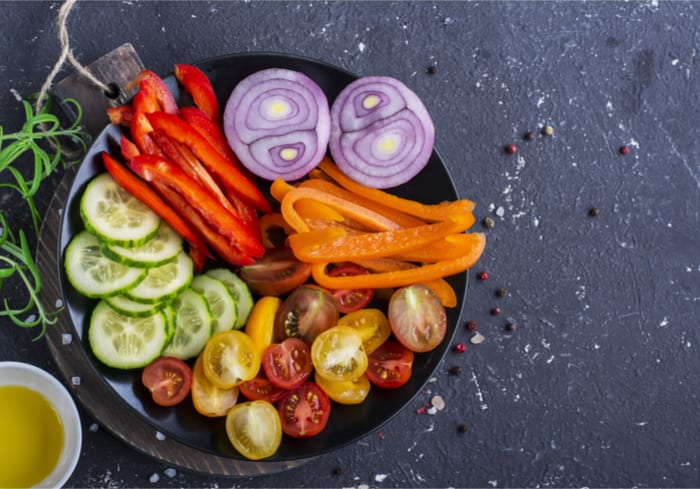Can Meal Kit Retail Reinvent Itself?

It almost served as a milestone for meal kit retail earlier this week when, on Tuesday (April 30), Blue Apron said that, on an adjusted EBITA basis, it achieved probability “of $8.6 million in the first quarter of 2019, with an improvement of $25.8 million year over year from an adjusted EBITDA loss of $17.2 million.”
That’s reportedly the first time that has happened since the company’s initial public offering in 2017.
Still, Blue Apron continued to shed customers — a 30 percent year-over-year decline in Q1, in fact — as it keeps trying to reinvent itself, and under a new CEO. Indeed, meal kit retailers continue to seek out a firmer footing by trying new things.
New Strategies
Sometimes that means thinking more than a little bit outside the box.
Presto Eats as a good example of that.
The startup meal kit provider, as explained in a recent PYMNTS interview, has designed its service around a specific appliance — in this case, the increasingly popular multicooker. Multicookers like the Instant Pot offer various cooking functions, such as steaming, baking and roasting, with the press of a few buttons. Instead of watching and stirring, consumers can simply press a button, which essentially does the cooking for them.
“I fell in love with the new wave of kitchen appliances,” Connie Chong, the company’s founder and CEO, told PYMNTS. When she got her first Instant Pot a year ago, she said she was “impressed at how dramatically it cut down on the cooking time.”
Presto Eats, which now serves the Calgary area, offers meal kits that can be cooked quickly in multicookers. Chong said her service is “definitely the original Instant Pot meal kit, because nothing else exists for it yet.” Multicookers are gaining traction in the marketplace. The Instant Pot was the best-selling item on Amazon during Black Friday in 2017.
The offerings include yellow curry with tofu and basmati rice, and one of her top sellers is salmon with risotto and snap peas. While the company now has its initial permanent menu, there are plans to offer rotating menus with locally-sourced food in the future. Chong also aims to make the company environmentally sustainable by using recyclable plastics.
Market Landscape
n 2017, there were approximately 150 meal kit companies in the U.S., such as Blue Apron, HelloFresh and Munchery. These services deliver ingredients and recipes directly to consumers’ homes, sparing them from ordering takeout or finding the time to stop at the grocery store.
According to data included in recent PYMNTS research about the meal kit industry, there is still a healthy appetite for these services. The meal kit subscription market is projected to generate approximately $3 billion in 2018.
However, this figure accounts for less than 1 percent of the $1.3 trillion U.S. food market.
Not only that, but there are that consumers are not as hungry for subscription meal kits as they once were.
A recent survey found that 19 percent of U.S. adults have tried a meal kit service, but businesses face problems with customer retention. Of the consumers who have tried meal kit deliveries, only 38 percent are still subscribing.
The same survey also found that consumers are not willing to commit to these services long-term — 39 percent of respondents who tried a service only used it once, and 26 percent used it for under a month. Only 9 percent said they subscribed for half a year or longer.
Price was one of the most significant factors that influenced subscriber commitment, with 49 percent cancelling services due to cost. A larger share at 59 percent said they never used a meal kit service past its trial period because of the expense.
New Focus
For Blue Apron, meeting those challenges means, in large part, focusing more on what new President and CEO Linda Findley Kozlowski, during this week’s post-earnings conference call, described as “our highest affinity customers.”
Blue Apron is “deliberately prioritizing this valuable segment and focusing on the most efficient channels to reach them,” she said. “From my experience, I believe that narrowing our focus to our highest impact opportunities in the business is an important foundational step and critical as we build our growth strategy in the coming weeks and months.”
It takes a lot to survive and thrive in meal kit retail. Blue Apron will show, sooner or later, if that narrowed focus in part of the recipe for success.